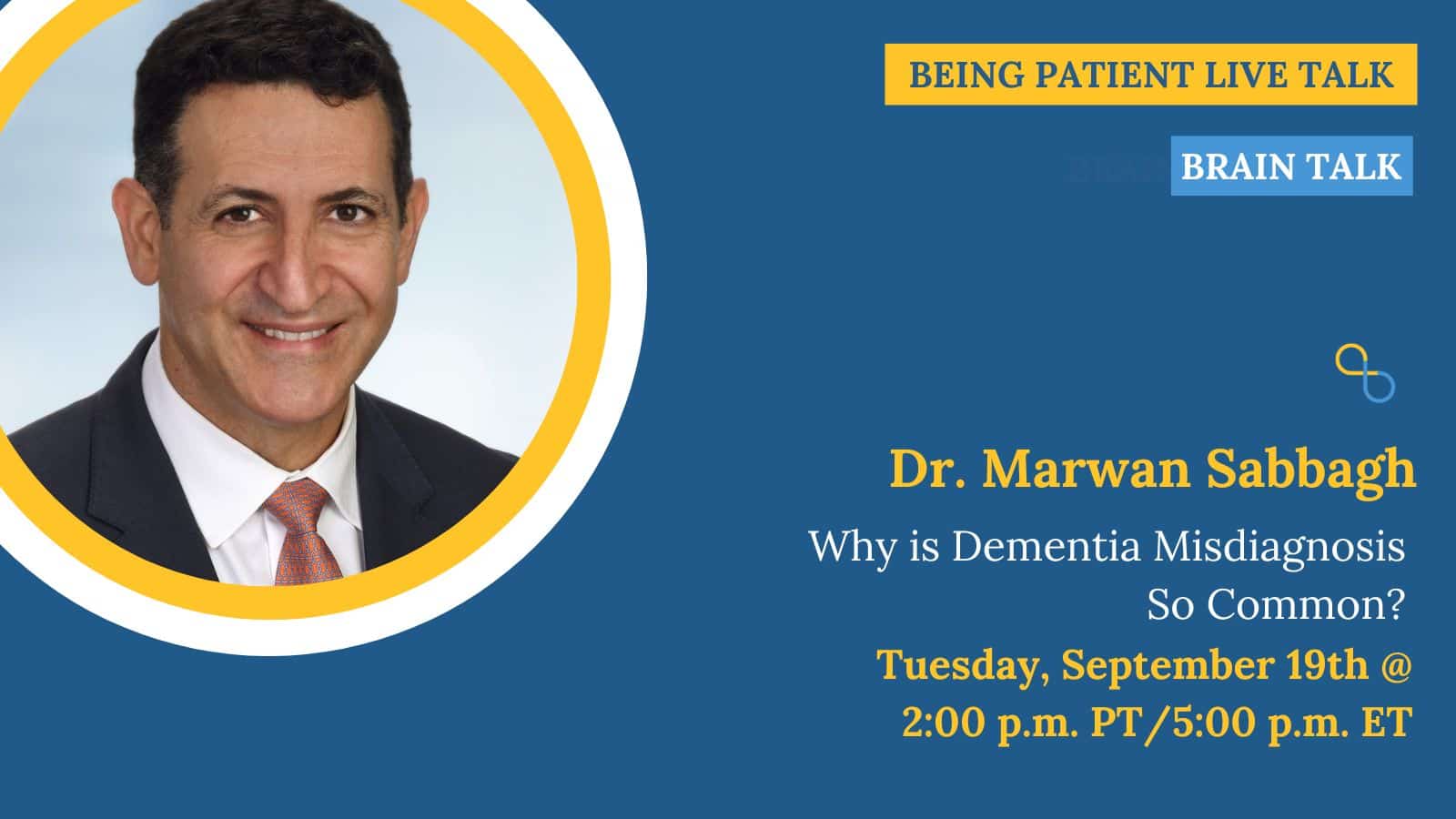
- This event has passed.
Marwan Sabbagh: Why is Dementia Misdiagnosis So Common?
September 19, 2023 – 2:00 pm – 3:00 pm PDT

Catching and accurately identifying a neurodegenerative disease like Alzheimer’s or another form of dementia early can make all the difference in the world to a patient and their loved ones: An early diagnosis means more time to plan for the future, join a clinical trial testing cutting-edge disease-modifying treatments, making lifestyle changes to slow symptoms, or spending more time with loved ones. On the other hand, a misdiagnosis could mean that patients receive the wrong medications, causing harm — and unfortunately misdiagnoses are all too common when it comes to dementia. Why is this the case, and what can patients do about it?
On Tuesday, September 19th at 2:00 p.m. PT/5:00 p.m. ET, neurologist, author, and Alzheimer’s expert Dr. Marwan Sabbagh joins Being Patient Live Talks to discuss why dementias are so difficult to diagnose. Sabbagh, a board-certified behavioral neurologist at Barrow Neurological Institute’s Alzheimer’s and Memory Disorders Program and a professor at the institute’s Department of Neurology, has served as the lead investigator on a number of prominent national Alzheimer’s prevention and treatment clinical trials. In this talk, he’ll speak to the factors that make dementia so difficult to diagnose accurately for experts and clinicians — as well as what patients and their families can do to advocate for an accurate diagnosis and a faster response to brain health concerns.
RSVP below to learn more about what caregivers and people living with dementia should know about diagnosis.
Who's coming?
88 people are attending Marwan Sabbagh: Why is Dementia Misdiagnosis So Common?
Most interested to hear your recommendation of what age to include simple cognitive test in wellness exams, perhaps age 50,